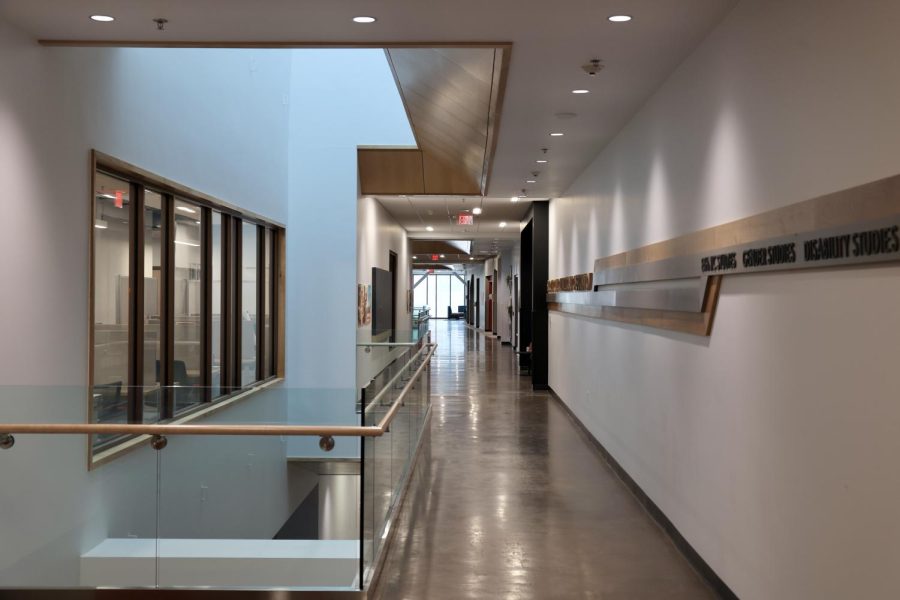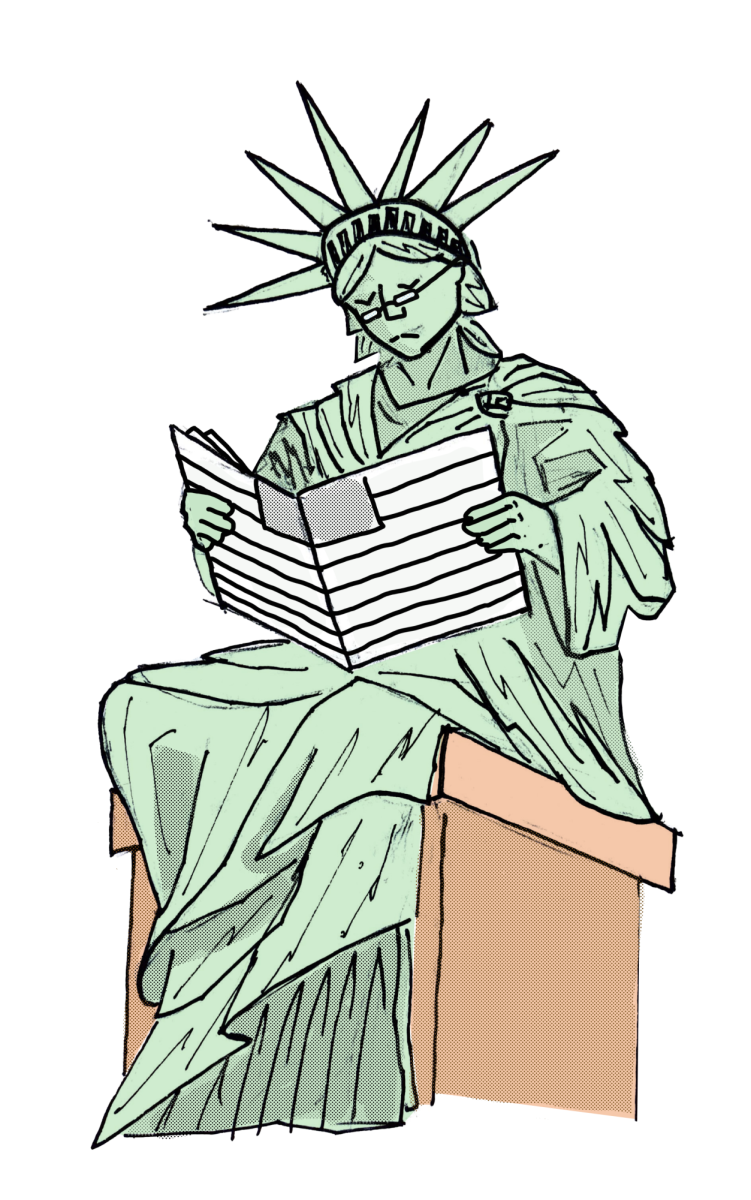How Mellon Grants Have Shaped the College of Transformation Over the Years
The School for Cultural and Social Transformation in Gardner Commons on the University of Utah campus on April 3, 2023. (Photo by Sophie Felici | The Daily Utah Chronicle)
June 6, 2023
The School for Cultural and Social Transformation, or Transform at the University of Utah has seen many changes and victories throughout its existence.
The college was formed in late 2016, with a vision to challenge the ways students perceive the world and people around them. Since its formation, the school has received three prestigious Mellon Grants and used the money to fund the college.
Kathryn Bond Stockton is the dean of Transform. She previously served as the associate vice president for Equity and Diversity at the U. As a scholar who works in the domain of queer theory and queer of color critique, she was involved with the creation of the college.
According to the One U Thriving website, Transform is “the first school in the Intermountain West to make the intersection of race, gender, and social justice its focus.”
At the fifth anniversary, a reflective Q&A was done with the chair of gender studies, Wanda Pillow, the chair of ethnic studies, Edmund Fong, and Stockton, to answer any questions community members had.
The school introduced an ambassador program where three students do outreach and plan events to advocate for the college and their events. Talea Steele is one of the students on the ambassador team. She is a sophomore at the U, studying ethnic studies and criminology.
Steele has gotten critical questions about the viability of her major after college, as well as confusion as to what the school even teaches. But she as well as Stockton emphasized the importance of learning about these ideas and how it interacts with the systems in the world.
“I don’t know if you could pick a more relevant major, than ethnic studies, gender studies, disability studies, some combination thereof because in many ways, these issues are also the issues that employers want to see people coming with an established knowledge base,” Stockton said.
She explained there are 235 Transform majors, minors and certificate-takers. And on the class level, there are 1,040 students being reached through undergraduate and graduate-level classes. Areas of study within the college are gender, Pacific Islands, ethnic and disability studies.
Transform has received three Mellon grants in order to fund its goals and initiatives for the college and Utah. The prestigious Mellon grants have been awarded yearly since 1969 to select universities across the nation. Their website states, “Through our grants, we seek to build just communities enriched by meaning and empowered by critical thinking, where ideas and imagination can thrive.”
With the funding that came from the first Mellon grant in 2018 — $600,000 — the college was able to build the Pacific Islands Studies initiative. Steele mentioned how she has seen the Mellon grants implemented, especially in the Pacific Islands program.
“They got like a million dollars to really develop that program and bring in more professors and everything, which I think is really great because in Utah, there is such a large population of Pacific Island people, it is great to have because you’re going to need to know about people from all these different areas of life,” Steele said.
Based on the progress the program made adding undergraduate certificates in the PI studies program, the grant was renewed in Spring 2022 for another three years. According to Stockton, with the new endowment of $1 million, the school is looking to hire more faculty, add a graduate certificate and build a Center for Pasifika and Indigenous Knowledge.
The third Mellon grant was awarded to the school in December of 2022, and contained $517,000 to fund the beginning of an intersectional studies collective at the U.
“Mellon came to us out of the blue, and asked if we would like to be one of only five universities in the country to help build a national network for intersectional studies,” Stockton said.
According to @TheU, intersectionality “describes the field of study that examines the interlocking dynamics of how race, gender, sexuality and (dis)ability, among other critical entities, intersect each other.”
As they look back and reflect on what the last seven years have brought about for the college, Stockton is looking forward to the future, and what it will hold for Transform.
“I feel that as a school we are dramatically positioned to contribute to that unsurpassed societal impact,” Stockton said.









